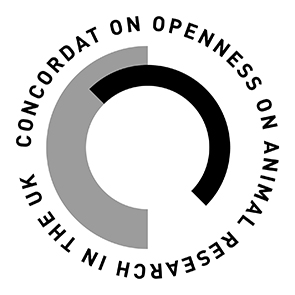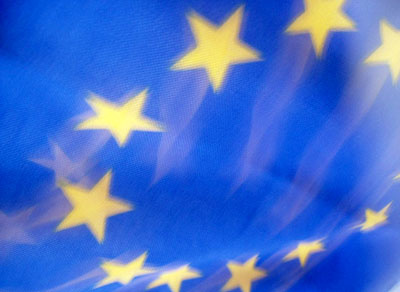Current Activities
ASG meetings
The ASG meets quarterly, either in person or online, to share updates on animal science related activities, to carry out horizon scan of upcoming issues, and to collect evidence and views on current science and policy topics (e.g. consultations, inquiries, recent reports).
Normally, each meeting features an invited specialist talk to inform the group's discussions on a theme of interest. This is a list of recent topics discussed over the period 2017-2023:
- A look back at the ethics of animal research 2005-2017.
- Roadmap to end severe suffering in research on animals.
- Genome editing and animal models for laboratory research.
- Animal welfare in farmed animals: current research on dairy cows.
- Use of evidence at the Department of Environment, Food and Rural Affairs.
- Development and regulation of gene drives in insect & mammals.
- Sustainable agriculture and the role of livestock in food security.
- Antibiotics anonymous – reducing antibiotics usage & examining selection and transmission of antimicrobial resistance in the UK livestock sectors.
- Environmental and welfare aspects of using genetic technologies for endangered and extinct species.
- Pain and welfare assessment in fish and marine invertebrates.
- Behavioural tests in neuroscience and psychopharmacology: the case of the Forced Swim Test.
- The Godfray review, Cattle vaccines and DIVA Diagnostics.
- Sex as an important variable in animal research.
- Animal research models for COVID-19.
- Genome editing in farmed animal species.
- Use of dogs in preclinical testing and research – potential for 3Rs applications.
- Nuffield Council on Bioethics report: Genome editing in farmed animals – social and ethical issues.
- Welfare research at IoZ with a focus on work combatting the Global Amphibian Decline.
- Editing livestock genome (expert talk & roundtable discussion).
- The work of the Universities Federation for Animal Welfare (UFAW).
- An evolutionary genomic perspective on gene movement.
- The role of review and regulatory approvals processes for animal research in supporting implementation of the 3Rs
- Gene editing and welfare challenges in aquaculture
- The State of UK Nature report 2023
If you are interested to know more about the thematic talks or suggest themes for discussion, you can email the secretariat at asg@rsb.org.uk.
Annual Animal Science Meetings
The Annual Animal Science Meetings are hosted by the Royal Society of Biology. The programme of the meeting is developed by the ASG secretariat and chair in consultation with the members of the Animal Science Group.
Consultations

The ASG contributes evidence and provides advice to the drafting of RSB responses to Government consultations and parliamentary inquiries. Recently, the ASG engaged with and influenced policy development of the Animal Welfare (Sentience) Act and responded to a number of other consultations issued by the Department for Environment, Food and Rural Affairs (DEFRA), such as on welfare of transported animals or agricultural policy. In 2019, the group contributed to the RSB response to the Nuffield Council on Bioethics consultation on ‘Genome editing and farmed animals’ and in 2021 to the RSB response to the consultation on the future regulation of genetic technologies in the UK carried out by DEFRA.
UK Bioscience Sector Coalition
The ASG provides advice and shapes the RSB contribution to the work of the UK Bioscience Sector Coalition (UKBSC). UKBSC members are actively engaged with the Home Office Animals in Science Policy Unit as life science sector stakeholders. UKBSC engagement with the Government should enable a two-way, transparent and open dialogue, where views and evidence from the life science sector on policy for the regulation of animals in science contributes positively to horizon scanning, strategy, and future UK policy and regulatory development.
Before a phase of regulatory reform was initiated in 2022, UKBSC used to meet with the Animals in Science Regulation Unit (ASRU) to discuss the development of guidance, practice and implementation of the Animals (Scientific Procedures) Act 1986 (ASPA, as amended by SI 2012/3039). Based on evidence and views provided on behalf of the sector and in response to public consultations and regular stakeholder meetings over the years, amendments have been made in the ASPA Guidance, ASPA Code of Practice, IT strategy, Annual Statistics and other advisory notes.
A secretariat is provided by the Royal Society of Biology. If you are an external body with a direct involvement in the use of animals in research and have general queries about UKBSC, please write to us at UKBSCSecretariat@rsb.org.uk.
Concordat on openness on animal research

The Royal Society of Biology was one of a number of organisations involved in the development of the Concordat on openness on the use of animals in research in the UK, which was led by Understanding Animal Research (UAR). By signing this Concordat we made a commitment to be as open as possible with the wider public about the involvement in the use of animals in scientific, medical and veterinary research in the UK. Read our statement for more details.
European Directive 2010/63/EU

On 3rd June 2015, the EU Commission replied to the "Stop Vivisection" European Citizens' Initiative, rejecting their proposal to ban animal research in the EU. In a fourteen page long response, the EU Commission listed current initiatives and set out a number of further actions that the Commission will take to speed up the development of valid alternative approaches. Read our news article.
The Society signed a statement supporting the European Directive 2010/63/EU on the protection of animals used for scientific purposes. "The European Parliament and Commission must oppose the 'Stop Vivisection' Citizens' Initiative that is seeking to repeal the Directive and ban animal research. The Directive is vital to ensure that necessary research involving animals can continue whilst requiring enhanced animal welfare standards." Professor Dominic Wells FSB, Chair of the Animal Science Group, spoke in support of the Directive. Read our response.
The Animal Science Group (ASG) is contributing to the UK Bioscience Sector Coalition (UKBSC) on options for implementation of the Animals (Scientific Procedures) Act 1986 (as amended by SI 2012/3039) - following the transposition of the European Directive 2010/63/EU on the Protection of Animals Used in Scientific Research. Discussions have concerned the Guidance, Code of Practice and Annual Statistics On The Use Of Animals For Scientific Purposes (issued for consultation by the Home Office) and the ASG has debated the options and supports the consultation response of the UKBSC. Recently, we responded to a public consultation on Section 24 of the Animals (Scientific Procedures) Act 1986.
The ASG is also working closely with the Home Office on the implementation of the new Directive and held discussion meetings in recent years to explore the developments following the consultation process, among other relevant topics.
Responses and statements
- The Home Office publishes the national statistics on the use of animals in scientific research every year. The chair of the ASG has historically provided commentary on the statistics to the Science Media Centre. It is customary for the RSB to respond to this annual statistical release (see our latest news story here).
- The third survey on public awareness of, and attitudes towards, the use of animals in scientific research conducted by IPSOS MORI was published in 2018. The survey also examines attitudes towards, and trust in, the regulatory system and the people who work with animals in research. The survey is based on a long-term exercise that has been running since 1999 but in 2014 the questions were updated, so direct comparisons between the two longitudinal data-sets are not possible. You can read our news story about the 2014 survey findings.
Relationship with other Organisations
The ASG maintains a close relationship with UAR (e.g. on public engagement, the Concordat on Openness and messaging on the annual ASRU statistics) and the NC3Rs (e.g. on the development of policy to support the 3Rs and on the organisation of the RSB/NC3Rs research symposium).
ASG involvement in other policy areas
- The ASG is responsible for developing RSB policy on animal science issues relating to both research and teaching - for example by providing advice on the creation of a professional development e-learning tool produced by the RSB for professionals working under ASPA, which covers module 1 and 2 of the Home Office training.
- The ASG also support the development and the uptake of the curriculum for the use of research animals - a project coordinated and led by the British Pharmacological Society. The curriculum covers the knowledge, skills and attitudes that should be acquired by students specifically with respect to the use of research animals.
- The ASG engages with the RSB Genome Editing Advisory Group on issues relating to synthetic biology and genome editing in non-human animals.
- The ASG seeks to engage with the widest possible range of animal science sectors and communities (including in zoology, conservation and agriculture), and invites external stakeholders to get in touch with the group to discuss shared areas of interest and potential collaborations.


